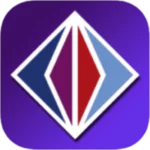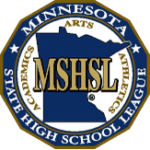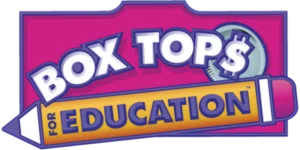About
A Top Level View of St. Croix Prep
Located on 59 acres of land, St. Croix Preparatory Academy’s educational philosophy is based on the classical methodology of grammar, logic, and rhetoric, an educational philosophy proven to achieve outstanding academic results.
What is a Charter School?
A charter school is a tuition-free independent public school of choice, with the ability to select its own board, staff and curriculum. Charter schools are usually small learning communities with a particular curricular focus. In addition, charter schools must go through a rigorous state application process, as well as obtain an authorizer who will be directly involved in monitoring the school’s academic results and fiscal accountability.
Are there tuition costs?
No. As a public charter school, St Croix Preparatory Academy receives state funding for its operations.
What are class sizes?
Grades K-4 have 30 students per class. In addition, Grades K-4 also have an Educational Assistant in the classroom to address their classroom needs. Grades 5-12 have between 27-32 students per class.
"St. Croix Preparatory Academy will develop each student's academic potential, personal character, and leadership qualities through an academically rigorous and content rich educational program grounded in a classical tradition."
Academics
A classical model focuses on providing students with the lifelong educational tools to learn and think for themselves. The classical tradition is grounded in the time-tested methodology of learning called the “Trivium”, which recognizes that critical learning skills must precede critical thinking skills.
The Trivium methodology is organized into the three stages of learning — grammar, logic, and rhetoric — which correspond to the general stages of a student’s cognitive development.
At St. Croix Preparatory Academy, the values of citizenship, courage, honesty, integrity, perseverance, respect, responsibility, compassion, self-control, and service will be identified, modeled and clearly conveyed.
Upper School students are required to document at least 10 hours of community service during their freshman, sophomore, and junior year; and 20 hours of community service is required during a student’s senior year. The community service requirement emphasizes the importance of giving to one’s community.
Character
Leadership
St. Croix Preparatory Academy views leadership as the ability to first think and reason, then act with integrity and responsibility.
‘Leadership’ is one of the most overused and least understood terms in our society, often conjuring up images of power, success, titles and possessions. By contrast, the founders of St. Croix Preparatory Academy view leadership as the product of education and character development.
Educational
Philosophy
The School is based on a classical model of education. A classical model focuses on providing students with the lifelong educational tools to learn and think for themselves. The classical tradition is grounded in the time-tested methodology of learning called the “Trivium”, which recognizes that critical learning skills must precede critical thinking skills. The Trivium methodology is organized into the following three stages corresponding to the general stages of a student’s cognitive development:
Trivium
There are three phases in the Trivium methodology: Grammar, Logic and Rhetoric. Each stage of the Trivium corresponds to the general stages of a child’s cognitive development as follows:
Grammar
Knowledge
The first phase of the Trivium is Grammar, which emphasizes the facts and rules of each subject that later learning is built upon. This stage focuses on the accumulation of knowledge and the rules related to each particular subject. The objective of this phase is to provide each child with a strong foundation of subject matter KNOWLEDGE.
Cognitive Skills Developed:
- defining
- describing
- identifying
- matching
- memorizing
- annotating
- calculating
- changing
- converting
- grouping
- interpreting
- paraphrasing
- predicting
- reviewing
- summarizing
Logic
Understanding
The second phase is Logic, which focuses on the students’ ability to analyze and interact with the knowledge acquired in the Grammar stage. The Logic stage is the phase where understanding is grasped. This corresponds with the child’s curiosity and desire to ask questions. The objective of the Logic phase is UNDERSTANDING.
Cognitive Skills Developed:
- applying
- adopting
- collecting
- constructing
- contrasting
- discovering
- illustrating
- inferring
- outlining
- selecting
- sorting
- comparing
- diagramming
- differentiating
Rhetoric
Communication
The final phase, Rhetoric, trains the student how to express and discuss the subject. Rhetoric is the communication stage, where students defend and refute opinions based on their understanding and knowledge of subject matter. This fits nicely with the students’ affinity for contradiction and argumentation. The objective of the Rhetoric phase is COMMUNICATING.
Cognitive Skills Developed:
- building
- changing
- composing
- creating
- designing
- formulating
- hypothesizing
- planning
- predicting
- producing
- revising
- writing
- criticizing
- defending
- evaluating
Curriculum
St. Croix Preparatory Academy uses the Core Knowledge Sequence developed by E. D. Hirsch for grades K-4. The Core Sequence is a challenging and proven curriculum being used with positive results in over 1,500 schools across the country. To learn more about the Core Knowledge, visit
St. Croix Preparatory Academy uses a classical, liberal arts curriculum for grades 5-12, modeled after many of the best performing secondary schools in the country (e.g., Tempe Preparatory Academy in Arizona, Ridgeview Classical Academy in Colorado, etc.) It combines formal classes, a classical framework, and Paideia seminars to draw out each student’s inner curiosity and passion. It also asks all students to aim for their highest good in everything they try, and to aspire to mirror the efforts and achievements of outstanding historical personalities. In this environment, high achievement by students will be valued, encouraged, and rewarded.
Why is Latin Taught?
The study of Latin fosters decoding skills that provide students with a solid foundation for reading and writing. Latin enhances students’ vocabulary, increases their understanding of English grammar, improves reading and spelling, encourages precise communication, and becomes the cornerstone for the study of other languages.
Athletics & Activities
About
The St. Croix Preparatory Academy Activities Program is designed to offer our students the opportunity to participate in co-curricular programs that compliment and integrate the school’s mission of character, leadership and academics.
Student participation in activities can encourage individual development by providing opportunities for leadership, sportsmanship, fellowship, teamwork, commitment to goal achievement, character building, communication skills, and school pride.
The Activities Program will provide a well-rounded, professionally directed and supervised program at all levels. The program shall operate primarily for the benefit of the students who participate directly or vicariously in these activities, although the importance of public fan and spectator support is also recognized and appreciated.
Programs
St. Croix Prep is a member of the Skyline conference and currently offers Minnesota State High School League athletic programs (e.g. varsity, junior varsity, freshman, etc.) for Boys Soccer, Girls Soccer, Volleyball, Boys Cross Country, Girls Cross Country, Archery (NASP), Boys Basketball, Girls Basketball, Alpine Skiing, Boys Baseball, Girls Softball, Girls Lacrosse, Boys Track, and Girls Track.
St. Croix Prep also offers Pep Band, Debate, Speech, Knowledge Bowl,Continental Math League, Upper School Theater, Middle School Theater, Lion Cub Theater Group, Theater Club, Upper School Student Council, Lego League, National Honor Society, National Art Honor Society, National English Honor Society, Ski/Snowboarding Club, and Yearbook.
Authorizer































